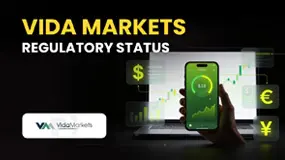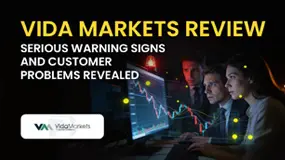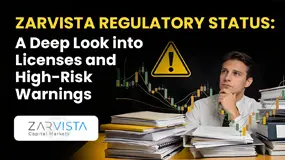Abstract:With market fluctuations happening in real-time and profits hinging on split-second decisions, many traders develop an impulse to act quickly. But have you ever stopped to ask yourself: Am I rushing into trades? If you’re constantly clicking “Buy” or “Sell” in a flurry of excitement or anxiety, you may be falling into a dangerous trap that could cost you more than you realise.

In the fast-paced world of online trading, speed often seems synonymous with success. With market fluctuations happening in real-time and profits hinging on split-second decisions, many traders develop an impulse to act quickly. But have you ever stopped to ask yourself: Am I rushing into trades? If youre constantly clicking “Buy” or “Sell” in a flurry of excitement or anxiety, you may be falling into a dangerous trap that could cost you more than you realise.

The financial markets thrive on volatility, and traders often feel an overwhelming urge to seize every apparent opportunity. This behaviour is commonly fuelled by fear of missing out (FOMO)—the anxiety that a lucrative opportunity is slipping through your fingers. Social media, financial news, and trading forums amplify this pressure, encouraging hasty decision-making.
However, rushing into trades without proper analysis can have dire consequences. Impulse trading often leads to poor risk management, emotional decision-making, and significant financial losses. By constantly reacting instead of planning, you expose yourself to avoidable mistakes, such as buying at peak prices or selling at the worst possible moment.

The most successful traders follow a carefully structured strategy rather than giving in to emotions. If you find yourself making frequent, unplanned trades based on gut instinct, consider these warning signs.
Entering trades without a solid plan is one of the biggest red flags. If you are buying or selling without predefined entry and exit points, you are likely gambling rather than investing. Another telltale sign is frequently checking your portfolio and reacting impulsively. Obsessively watching price movements can lead to unnecessary panic or overconfidence, causing you to make rash decisions that you later regret. Speaking of regret, if you often second-guess your trades soon after placing them, it indicates that your decisions lack proper justification. Additionally, feeling a constant urge to be in the market suggests an unhealthy attachment to trading. Being unable to sit on the sidelines is a sign of overtrading, which can drain both your capital and mental focus.

If any of these signs sound familiar, it is time to recalibrate your approach. The first step towards breaking free from impulsive trading is developing a structured trading plan. By defining clear entry and exit strategies, setting risk limits, and committing to your plan, you eliminate the guesswork and emotional interference that often lead to costly mistakes. Embracing patience is equally important. Not every market movement requires a response, and sometimes, the best trade is the one you do not take.
To safeguard your trades from emotional decisions, use stop-loss and take-profit orders. These tools help ensure that your trades are executed according to pre-set conditions rather than being influenced by momentary market fluctuations. Keeping a trading journal can also be highly beneficial. Recording your trades, along with the reasoning behind them, allows you to identify patterns in your behaviour and pinpoint areas where you may be acting impulsively. Additionally, limiting screen time can help mitigate stress-induced decisions. Constantly monitoring the markets increases anxiety and the likelihood of making knee-jerk reactions, so stepping away and trusting your strategy can lead to better long-term results.
In trading, speed can be an asset, but only when it is backed by careful planning and sound judgment. If you often find yourself rushing into trades, take a step back and reassess your strategy. The best traders are not the ones who trade the most but the ones who trade the smartest with proper planning.
Next time you feel the impulse to execute a trade, ask yourself: Is this a well-thought-out decision, or am I simply chasing the market? The answer could mean the difference between sustainable gains and costly mistakes.













